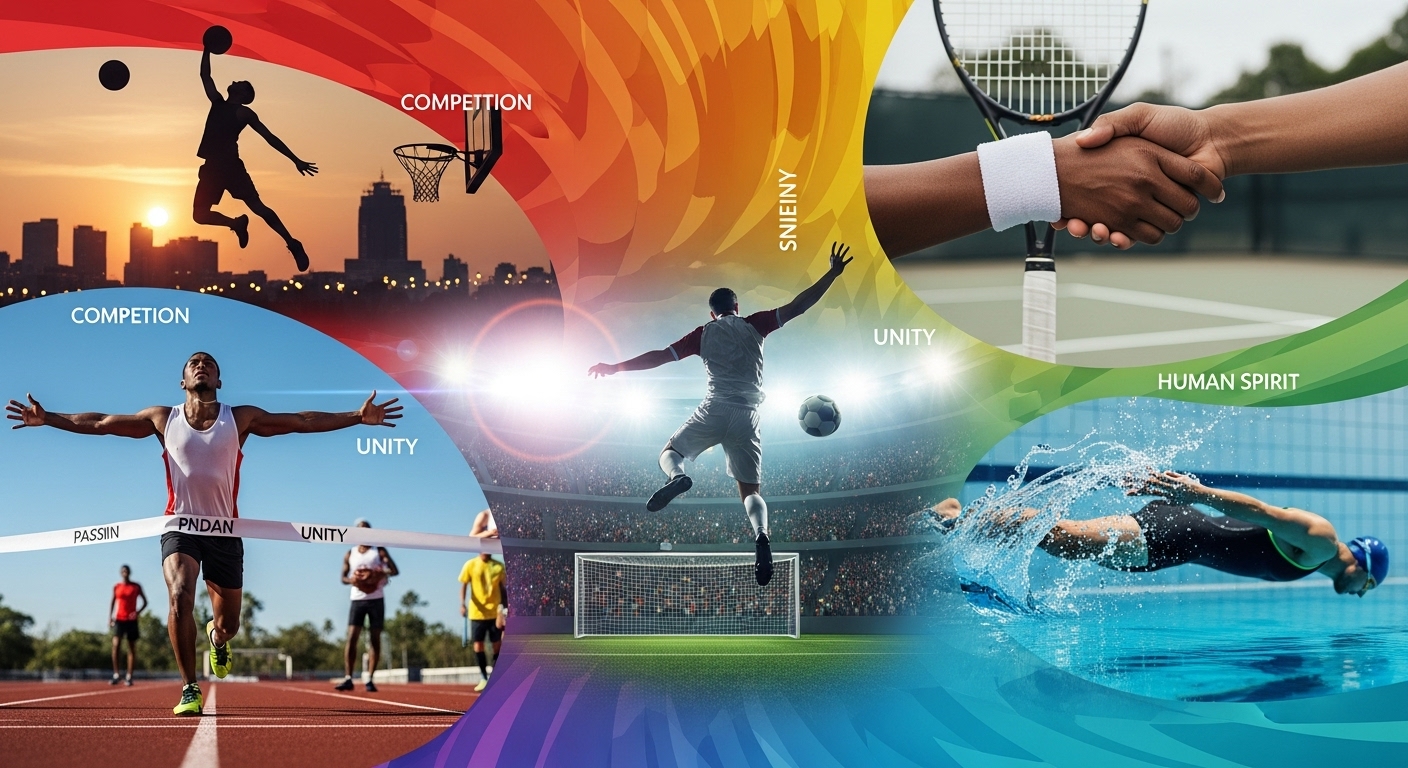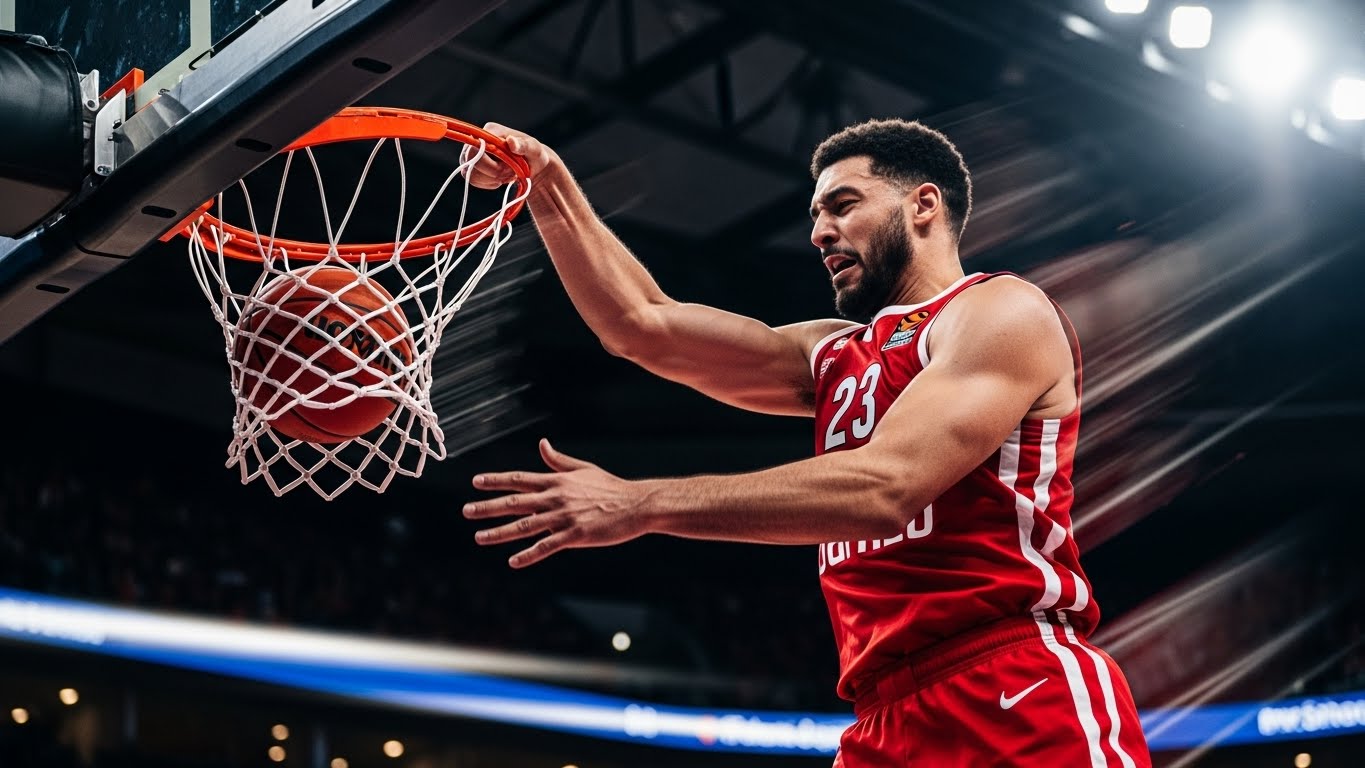Sports have been a part of human civilization since the dawn of time. From ancient wrestling matches in Greece to modern-day Olympic spectacles, sports embody the essence of human spirit, strength, and endurance. It is not merely about competition or entertainment; it is about unity, discipline, and the relentless pursuit of excellence. The beauty of sports lies in its universal appeal. Regardless of age, gender, or nationality, people across the world share an unbreakable bond through their love of sports. Whether it is a child kicking a ball in the streets, an athlete running against the clock, or fans cheering passionately in a stadium, sports continue to unite hearts and inspire generations.
The Historical Evolution of Sports
The history of sports dates back thousands of years. In ancient civilizations, sports were often associated with rituals, physical fitness, and preparation for warfare. The Greeks, for instance, considered athleticism as an essential aspect of human perfection. The Olympic Games, which began in 776 BC, celebrated this belief and became the foundation of organized sporting events. The Romans later embraced gladiatorial contests and chariot races, reflecting the competitive nature of their society. In ancient China, sports like martial arts and archery were deeply connected to philosophy, discipline, and honor.
As time passed, sports evolved from primitive physical activities into organized and professional competitions. The Middle Ages introduced jousting, fencing, and horse racing as popular pastimes among the nobility. During the Renaissance, sports gained intellectual appreciation as scholars promoted physical education as vital to personal development. The Industrial Revolution in the 18th and 19th centuries marked a turning point. With the rise of urbanization and leisure time, modern sports such as football, cricket, tennis, and baseball began to flourish. Rules were standardized, clubs were established, and the spirit of fair play became a guiding principle.
The Role of Sports in Modern Society
In the contemporary world, sports have transcended beyond mere games. They have become a powerful tool for education, diplomacy, and social progress. Sports promote physical fitness, mental well-being, and teamwork. They teach life lessons about resilience, leadership, and humility. In schools, sports help children build confidence, discipline, and social connections. For adults, they offer a means to relieve stress and maintain a healthy lifestyle.
Sports also play a vital role in national identity and pride. International tournaments such as the FIFA World Cup, the Olympics, and the Cricket World Cup unite millions of people under one flag. When athletes perform on global stages, they become ambassadors of their nations, symbolizing unity and excellence. Beyond nationalism, sports have also been a bridge between cultures. Events like the Olympics bring together people from diverse backgrounds, promoting peace and understanding through friendly competition.
The Psychological Impact of Sports
The psychological benefits of sports are profound. Engaging in physical activity releases endorphins, often called “feel-good” hormones, which help combat stress and anxiety. Athletes often demonstrate higher levels of mental toughness, focus, and emotional control. Competitive sports teach individuals to face failure and bounce back stronger, nurturing a mindset of perseverance. Moreover, participation in team sports fosters empathy and cooperation, skills that extend beyond the playing field into everyday life.
Spectators, too, experience emotional engagement through sports. The thrill of victory and the agony of defeat evoke deep feelings of connection and passion. Fans identify with teams and athletes, finding inspiration in their journeys. The emotional bond between sports and fans often transcends generations, creating shared traditions and cherished memories.
The Globalization of Sports
In the 21st century, sports have become a global industry. With advancements in technology, media, and travel, sports have reached audiences in every corner of the world. A football match in Europe is watched by millions in Asia, Africa, and the Americas simultaneously. Television, streaming platforms, and social media have transformed how people engage with sports. Fans no longer need to be in the stadium to feel part of the action; they can connect instantly with their favorite athletes through digital interactions.
The commercialization of sports has also created massive economic opportunities. Sponsorships, endorsements, and broadcasting rights have turned athletes into global icons and sports organizations into billion-dollar enterprises. However, this commercialization has sparked debates about the balance between passion and profit. While economic growth has enhanced the quality and reach of sports, critics argue that excessive commercial influence sometimes overshadows the purity of competition.
The Power of Sports in Promoting Equality
Sports have played an instrumental role in challenging social norms and promoting equality. Throughout history, athletes have used their platforms to fight discrimination and advocate for change. The breaking of racial barriers by legends like Jackie Robinson in baseball and Jesse Owens in athletics marked defining moments in the struggle for civil rights. Similarly, the rise of women’s sports has been a powerful movement toward gender equality. Icons such as Serena Williams, Simone Biles, and Megan Rapinoe have redefined what it means to be a female athlete, inspiring millions of young girls worldwide.
Paralympic athletes have also shown that physical limitations are not barriers to success. Their achievements remind the world of the importance of inclusivity and determination. Sports, at its core, is a celebration of human potential—regardless of background, gender, or ability.
The Role of Technology in Sports
Technology has revolutionized every aspect of sports, from performance analysis to fan engagement. Modern athletes benefit from advanced training equipment, wearable sensors, and data analytics that help optimize their performance. Coaches use video analysis and artificial intelligence to study opponents and refine strategies. In medicine, innovations in rehabilitation and injury prevention have extended athletes’ careers and improved recovery times.
Fans also enjoy immersive experiences thanks to technology. Virtual reality allows spectators to experience games as if they were on the field. Social media platforms enable direct communication between athletes and their supporters, creating a more personal connection. E-sports, the competitive world of video gaming, has emerged as a new frontier, attracting millions of participants and spectators globally. It demonstrates how technology continues to expand the boundaries of what is considered “sport.”
The Economic Influence of Sports
The sports industry is one of the largest economic sectors in the world. It encompasses a wide range of activities, including professional leagues, merchandising, tourism, and media production. Major sporting events generate billions in revenue, boost local economies, and create jobs. Cities hosting international tournaments often experience infrastructure development, improved transportation, and global exposure.
Sports sponsorship and branding have become strategic marketing tools for companies. By associating their names with athletes and events, brands reach massive audiences and enhance their image. However, the commercialization of sports also brings ethical challenges. Issues such as corruption, doping, and match-fixing threaten the integrity of competition. Maintaining transparency and fairness remains a critical challenge for sports organizations worldwide.
Sports and Health: A Lifelong Relationship
Sports and physical activity are fundamental to a healthy life. Regular participation in sports helps maintain cardiovascular fitness, muscle strength, and flexibility. It also reduces the risk of chronic diseases such as diabetes, obesity, and hypertension. Beyond physical benefits, sports improve mental health by promoting self-esteem and reducing depression.
Community sports programs encourage people of all ages to stay active and connected. Elderly individuals who engage in gentle sports like swimming, yoga, or walking maintain mobility and social engagement. For young people, sports instill discipline and time management skills that benefit their education and personal growth. The relationship between sports and health is not limited to professionals; it is a lifelong journey for everyone.
The Spirit of Competition and Sportsmanship
True sportsmanship goes beyond winning and losing. It is about respect, fairness, and integrity. The essence of sports lies in competing honorably and accepting outcomes with grace. History is full of examples where athletes have demonstrated extraordinary sportsmanship, choosing fairness over victory. Such moments remind the world that the true victory lies in character, not in trophies.
Competition drives excellence, pushing athletes to their limits. It fuels innovation, strategy, and the relentless pursuit of perfection. Yet, without humility and respect, competition loses its meaning. Sports continue to remind humanity that while winning is celebrated, the journey and values learned along the way are far more important.
The Future of Sports
As society evolves, so does the world of sports. The future will likely see even greater integration of technology, data, and sustainability. Virtual and augmented reality may redefine how fans experience games, while artificial intelligence could reshape training methodologies. Sustainability will become a central focus, with eco-friendly stadiums and environmentally responsible practices gaining importance.
Moreover, mental health awareness among athletes is receiving increased attention. The pressure of fame, competition, and performance can take a toll, and future sports systems are likely to place more emphasis on emotional well-being. The rise of inclusive sports—where individuals of all abilities and backgrounds can participate—will continue to expand, breaking barriers and redefining what competition means.
E-sports and digital competitions will also gain further legitimacy, appealing to new generations who see gaming as both entertainment and a form of athletic expression. The line between physical and digital sports will blur, creating a hybrid landscape that embraces diversity in participation.
Conclusion: The Timeless Power of Sports
Sports are far more than physical contests; they are a reflection of the human spirit. They teach perseverance in defeat, humility in victory, and unity in diversity. Whether it is a global championship or a neighborhood match, the passion remains the same. Sports inspire nations, shape identities, and nurture values that extend far beyond the playing field.
From the ancient arenas of Greece to the modern digital stadiums, sports have endured as a timeless celebration of strength, skill, and soul. They remind us that success is not defined by the scoreboard alone but by the courage to compete, the will to improve, and the integrity to play fair. In a world often divided by differences, sports continue to serve as a universal language—one that speaks through action, emotion, and shared humanity.
The story of sports is not just about athletes or championships; it is about every individual who dreams, strives, and believes. It is about the endless pursuit of excellence and the joy of participation. As long as there are people willing to challenge their limits, the world of sports will continue to thrive, inspiring generations yet to come.



